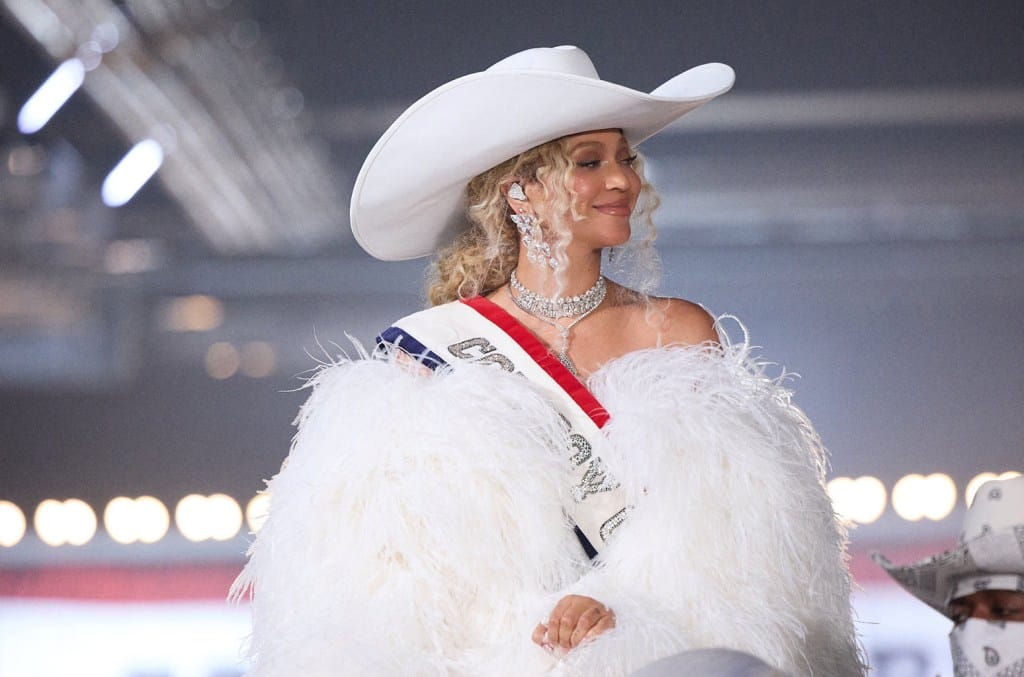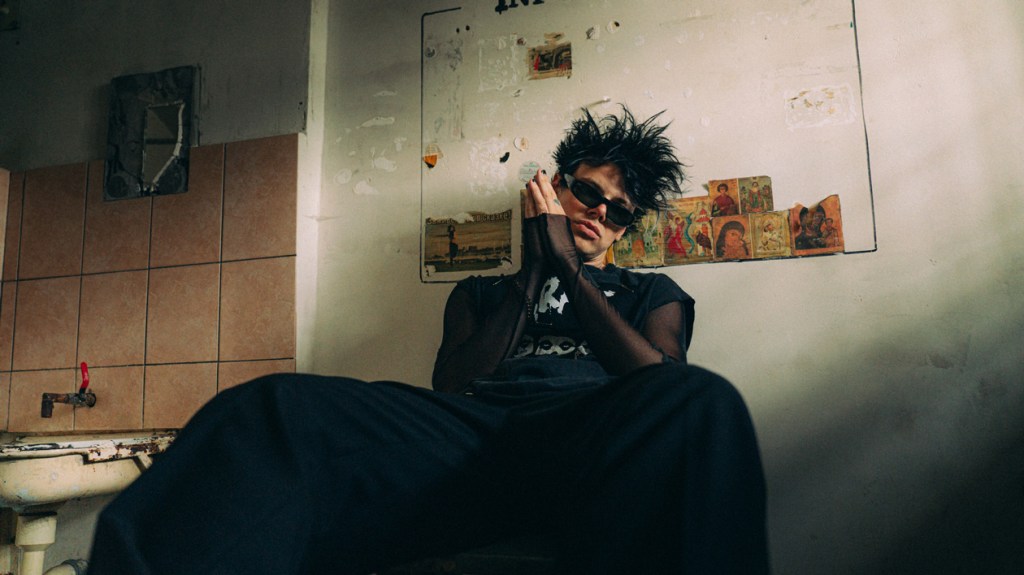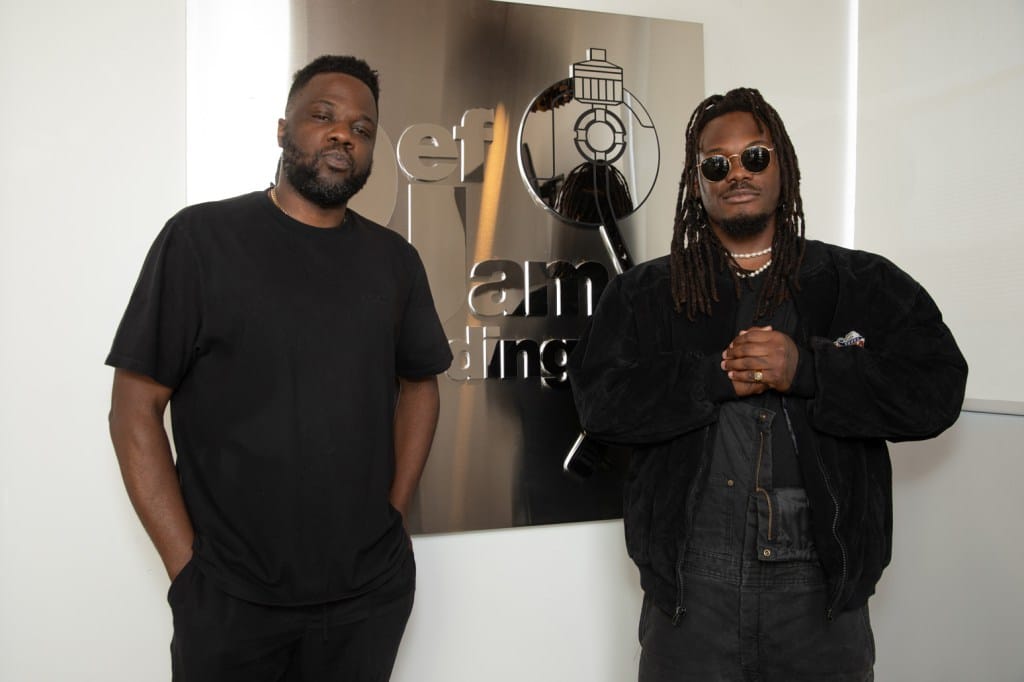Business
Page: 124
Sony Music reported 14% revenue growth in the quarter ending last year — or total revenue of 482 billion yen ($2.72 billion) — bolstered by big releases from ATEEZ and Tyler, the Creator and subscription streaming growth across recorded and music publishing divisions, its parent company Sony Group Corp., reported Thursday (Feb. 13). Sony Music’s […]
R. Kelly’s racketeering and sex trafficking convictions, along with a 30-year prison sentence, were upheld Wednesday by a federal appeals court that concluded the singer exploited his fame for over a quarter century to sexually abuse girls and young women.
The 2nd U.S. Circuit Court of Appeals in Manhattan ruled Wednesday after hearing arguments last March.
The Grammy-winning, multiplatinum-selling R&B songwriter was convicted in 2021 in Brooklyn federal court of multiple charges, including racketeering and sex trafficking.
Attorney Jennifer Bonjean, representing R. Kelly, said in a statement that she believed the Supreme Court will agree to hear an appeal. She called the 2nd Circuit ruling “unprecedented,” saying it gives prosecutors limitless discretion to apply the racketeering law “to situations absurdly remote” from the statute’s intent.
Last year, the high court declined to hear an appeal of a 20-year sentence Kelly received after he was convicted in 2022 of child sex charges including charges of producing images of child sexual abuse in Chicago.
The 2nd Circuit rejected Kelly’s arguments that the trial evidence was inadequate, the constitutionality of some state laws used against him were questionable, four jurors were biased, the trial judge made some improper rulings and a racketeering charge more commonly used in organized crime cases was improper.
“Enabled by a constellation of managers, assistants, and other staff for over twenty-five years, Kelly exploited his fame to lure girls and young women into his grasp,” the appeals court said, noting members of his entourage helped introduce him to underage girls.
“Evidence at trial showed that he would isolate them from friends and family, control nearly every aspect of their lives, and abuse them verbally, physically, and sexually,” the three-judge panel said.
The appeals court said it was “neither arbitrary nor irrational” that several accusers were permitted to testify at trial that Kelly gave them herpes without disclosing he had an STD, and it was not unduly prejudicial or cumulative that seven witnesses who were not yet adults when Kelly began to abuse them were allowed to testify.
“None of the testimony was more inflammatory than the charged acts,” the appeals court said.
The 2nd Circuit also said it was not unfairly prejudicial for the trial judge to let jurors view graphic videos. The videos, the appeals court said, “were properly admitted to show the means and methods of the enterprise, including the level of control and dominance Kelly had over his victims.”
Bonjean, in her statement on R. Kelly’s behalf, also cited a partial dissent in which one 2nd Circuit judge, Richard J. Sullivan, concurred with what he described as the majority’s “excellent opinion,” but dissented in part over a restitution award given one victim for a lifetime supply of a suppressive regime of herpes medication. The award was based on the cost of the brand-name drug when a generic drug is available.
“This was not restitution. This was an effort by the government to unfairly enrich government witnesses for their testimony,” Bonjean said.
Kelly, born Robert Sylvester Kelly, is known for work including the 1996 hit “I Believe I Can Fly” and the cult classic “Trapped in the Closet,” a multipart tale of sexual betrayal and intrigue.
Kelly sold millions of albums and remained in demand even after allegations about his abuse of young girls began circulating publicly in the 1990s. He was acquitted of child sexual abuse image charges in Chicago in 2008, but a second trial in Chicago in 2022 ended with his conviction on charges of producing images of child sexual abuse and enticing girls for sex.
Widespread outrage over Kelly’s sexual misconduct did not emerge until the #MeToo reckoning, reaching a crescendo after the release of the documentary “Surviving R. Kelly.”
This story was originally published by The Associated Press.
Sean “Diddy” Combs filed a lawsuit on Wednesday (Feb. 12) against NBCUniversal, claiming the company defamed him with the Peacock documentary Diddy: The Making of a Bad Boy.
According to documents filed in New York state court, Combs’ lawsuit claims the documentary — which debuted on Peacock in January — knowingly defamed him by making false murder and sex trafficking allegations, among other claims, which his attorneys say there is no credible evidence to support.
“The entire premise of the Documentary assumes that Mr. Combs has committed numerous heinous crimes, including serial murder, rape of minors, and sex trafficking of minors, and attempts to crudely psychologize him,” the lawsuit reads. “It maliciously and baselessly jumps to the conclusion that Mr. Combs is a ‘monster’ and ‘an embodiment of Lucifer’ with ‘a lot of similarities’ to Jeffrey Epstein.”
According to the lawsuit, the documentary “maliciously” claims that Diddy played a role in the deaths of his ex-wife Kim Porter, Christopher “The Notorious B.I.G.” Wallace and Dwight “Heavy D” Myers.
The documentary “shamelessly advances conspiracy theories that lack any foundation in reality,” the suit adds, “repeatedly insinuating that Mr. Combs is a serial killer because it cannot be a ‘coincidence’ that multiple people in Mr. Combs’s orbit have died.”
Combs is seeking $100 million in damages from the multimedia giant.
“As described in today’s lawsuit, NBCUniversal Media, LLC, Peacock TV, LLC, and Ample LLC made a conscious decision to line their own pockets at the expense of truth, decency, and basic standards of professional journalism,” Diddy’s attorney, Erica Wolff, said in a statement. “Grossly exploiting the trust of their audience and racing to outdo their competition for the most salacious Diddy exposé, Defendants maliciously and recklessly broadcast outrageous lies in Diddy: The Making of a Bad Boy.”
Wolff continued: “In the purported documentary, Defendants accuse Mr. Combs of horrible crimes, including serial murder and sexual assault of minors — knowing that there is no evidence to support them. In making and broadcasting these falsehoods, among others, Defendants seek only to capitalize on the public’s appetite for scandal without any regard for the truth and at the expense of Mr. Combs’s right to a fair trial. Mr. Combs brings this lawsuit to hold Defendants accountable for the extraordinary damage their reckless statements have caused.”
Billboard has reached out to NBCUniversal for comment.
Combs has remained behind bars since his arrest in September on sex trafficking and racketeering charges. He’s accused of being the face of a multi-faceted criminal enterprise with the goal of satisfying his sexual fantasies, including by hosting so-called “freak-off” parties. The disgraced hip-hop mogul has repeatedly been denied bail and will stay in the custody of Brooklyn’s Metropolitan Detention Center until his trial begins on May 5. He faces life in prison if convicted on all charges. In addition to his criminal case, Combs has been hit with dozens of lawsuits alleging sexual assault and other crimes.
If you run a successful independent label and you’re looking for an infusion of cash, the current music business is awash in opportunity.
“Independent labels often lead in trendsetting and new business models, such as the vinyl resurgence, event-driven branding and digital community-building,” says Wez Saunders, CEO of Defected Records, a long-running bastion of dance music. “And the shift toward streaming and digital monetization has allowed [indies] to grow without traditional major-label infrastructure. This success has made independent labels attractive investment opportunities.”
Sony Music in particular has quietly been investing in indies — not only Rimas, but also Mass Appeal, Fat Possum and Black 17 — according to executives with knowledge of the deals.
The size of the commitment varies: Sources say Sony took a minority stake in Fat Possum; a significant minority interest in Black 17; and a significant majority interest in Mass Appeal. All these labels have previous relationships with Sony through its distribution and services wing, The Orchard, which was born in the independent community and has spent many years nurturing connections there.
Trending on Billboard
This approach can help a major label maintain market share and provide a cost-effective mechanism to keep indie labels in the larger Sony ecosphere. It also allows a major to discreetly benefit from the increasing popularity of the independent sector.
“Large players have been securing stakes in indies to maintain their dominance while still allowing these labels to operate independently,” Saunders notes. “This gives majors indirect control over influential indie ecosystems without fully absorbing them into their corporate structures.”
Executives at Mass Appeal, Fat Possum and Black 17 declined to comment or did not respond to requests for comment. A representative for Sony Music declined to comment.
Major labels have been interested in independent companies for more than half a century. Over the years, many of the most famous indies — including Motown, Atlantic Records, A&M Records, Geffen and Island Records — have been vacuumed up into corporate collectives. In fact, these acquisitions are part of how major labels become “major” in the first place.
“Your clock is running when you’re at a major conglomerate,” explains Daniel Glass, founder of Glassnote Records and a former major label president and CEO at EMI Records Group back in the mid-1990s. “You need market share, you need profit. It’s much easier to buy a known entity.”
Acquiring independent labels, or parts of them, is even more important for the majors today as their market share is whittled down by the increased opportunities available to unsigned artists, who can easily upload music to streaming services through distribution companies. And getting a piece of indies has additional value in an increasingly international music industry — MIDiA Research estimates that the independents’ share of the global recorded music business is 40.8%.
In 2024, Sony Music CEO Rob Stringer described his company as “undoubtedly the most aggressive major music group in M&A over the last three years,” and acquiring stakes in labels distributed by The Orchard is just one part of that strategy. Since the start of 2021, Sony has also acquired the label services company AWAL, the Brazilian label Som Livre, the catalog of RECORDS, the Spanish label Altafonte, and a majority stake in the label Alamo.
The other two majors have made splashy purchases during this period as well, though not as many: Universal Music Group acquired [PIAS] and Downtown Music Holdings along with securing a stake in the Nigerian label Mavin Global, while Warner Music Group snapped up 300 Entertainment, 12Tone, Africori, and 51% of 10K Projects.
While Sony is happy to splurge, it doesn’t always acknowledge its purchases; the company still hasn’t admitted it bought a significant minority stake in Rimas. “We can sign huge catalogs,” Stringer told Bloomberg last year, “and we don’t tell anybody officially.”
Acquiring stakes in indies is one way for major labels to expand their reach. Another tried-and-true option is to distribute them. Sony has been a longtime leader in this area — in 1990, it bought a 50% stake in Important Record Distributors. Sony subsequently acquired the rest of that company, which by then had morphed into Relativity Entertainment Distribution (RED), in 1994. RED was later merged into The Orchard, which Sony bought fully in 2015.
But distribution relationships are by definition less permanent. “People are requesting shorter deals than ever and bouncing around just because there are a lot of options and a lot of money,” says one executive whose label is distributed by The Orchard.
In addition to major labels, private equity institutions are now looking for profitable investment opportunities in music, and new outfits like Firebird are offering their own versions of label services partnerships. “All these meetings are very seductive,” Glass says. “You go into the big office, they fly you in, take you to lunch.”
If indies demand shorter deals, those agreements have to be renewed more often, and each renewal gives the company a chance to ask for a bigger advance. One executive working with a bank known for lending to the music industry says he has seen the biggest advances ever from distributors seeking to sign independent labels in the last two years, especially when companies are trying to lure the label away from a rival.
It’s not surprising that the majors “don’t want to lose big [independent] labels” that they work with, says David Fritz, an entertainment attorney. Buying a stake in an indie company, then, serves as insurance against poachers with deep pockets. “It guarantees that [the major] gets to hold on to the market share,” says the executive whose label is distributed by The Orchard.
There are other benefits to buying pieces of indie labels. More and more artists want to call themselves independent — as Todd Rubenstein, a music lawyer, joked last year, “Now you’re either an unsigned artist or an indie artist.” A 2024 survey by MiDia Research and Amuse found that just 6% of artists said they wanted to sign to a major label, as opposed to 20% who aspired to sign to an indie, and even more who dreamed of partnering with a distribution company that offered some label services.
As Saunders puts it, “Major players recognize that the independent sector has strong brand credibility.” Investments in indie labels allow the majors to gain from that cred as well.
The desirability of the “independent” label may also help explain why a number of label owners are selling stakes but not handing over the keys to the whole company. Many founders today want to continue to oversee the operations they launched.
They can still benefit from selling a piece of their company, though. Defected partnered with Firebird to “remove financial constraints that independent labels often face when competing with major label-backed entities,” according to Saunders. “If you can get some resources that you need to be able to realize your vision, and it all makes sense on the ledger, then why not?” asks David Macias, co-founder of the label Thirty Tigers.
While Thirty Tigers is distributed by The Orchard, Macias says he hasn’t sold a piece of the label. (Though he says he did sell back his piece of Triple Tigers Records, a JV he started with Sony.) “Our conversations have been off and on through the years, sort of figuring out if there’s a way to make it all make sense,” Macias adds. “So far it hasn’t. But I never rule anything out.”
Additional reporting by Ed Christman.
After Chappell Roan was criticized by a former music industry executive for her speech at the 2025 Grammys, the singer encouraged the music industry’s power players to join her in raising money for artists’ healthcare coverage. Now, it appears that the industry listened.
On Monday (Feb. 10), Roan officially partnered with the non-profit Backline to launch the We Got You campaign, a fundraising initiative aimed at “supporting accessibility of health care for artists,” according to its donation page. In an Instagram Stories post revealing the partnership, Roan added that she had donated $25,000 to the campaign — with fellow artists Charli XCX and Noah Kahan matching her donation — and urged industry executives to do the same.
“Fans, y’all don’t have to donate a damn penny,” she said in the post. “This is one of many opportunities for the industry powers to show up for artists. There is much more work to be done.”
Trending on Billboard
According to We Got You’s donations page, multiple major music companies and executives matched Roan’s donations. Public $25,000 contributions from Live Nation, AEG Global Touring, Wasserman Foundation and Hinterland Music Festival are listed among the campaign’s supporters, as well as matching donations from Sumerian Records founder/CEO Ash Avildsen and talent manager Guy Oseary.
“Thanks Chappell Roan for inspiring change,” read a noted shared alongside AEG’s donation. Avildsen added, “Sumerian Records always strives to be on the right side of history. Then. Now. Forever.”
In a statement shared to their Instagram, Hinterlands Music Festival commended Roan, Kahan and Charli XCX for publicly supporting “adequate support” for artists. “Without great artists, there are no music festivals,” the organization wrote. “As an independent music festival, we are dedicated to continuing to support and advocate for the well-being of all musicians, no matter their industry success. WE GOT YOU!!”
“This surge in advocacy marks a turning point in our journey as an organization,” said Backline executive director Hilary Gleason in a statement sent to Billboard on Wednesday (Feb. 12). “We are thrilled to see artists, industry leaders, and corporations take action to invest in the health and wellness of the music industry professionals who make it all happen. The awareness alone will have a significant impact for the music community in 2025 and beyond.”
In her own statement shared shortly after the campaign was launched, Backline community manager Terra Lopez praised Roan for helping the organization raise vital funding for artists’ health. “The We Got You campaign is a powerful step in prioritizing mental health and well-being of those who make the music we all love,” she wrote. “Thank you to Chappell Roan, Charli xcx, and Noah Kahan for your advocacy and action to create a more supportive industry — together, we are showing artists they are seen, heard, and cared for.”
Roan’s $25,000 donation was first revealed in a response the artist wrote to former A&R executive Jeff Rabhan, who criticized the singer’s call for label-provided healthcare at the 2025 Grammys. “@jeffrabhan wanna match me $25K to donate to struggling dropped artists?” she wrote on her Instagram Stories last week. “I love how in the article you said ‘put your money where your mouth is.’ Genius !!! Let’s link and build together and see if you can do the same.” At press time, none of the public donations to the campaign bear Rabhan’s name.
From Usher’s Super Bowl showcase to the most musically talented Met, appearances related to major sporting events helped artists across genres — and at different career points — earn sizable streaming gains in 2024. (All data according to Luminate.)
And the trend has continued so far in 2025: Kendrick Lamar’s Super Bowl Halftime Show on Feb. 9 was a major boost for the rapper.
UsherSuper Bowl LVIII (Feb. 11)
The combination of Usher’s career-spanning medley during his spectacular Super Bowl halftime show and the release of his album Coming Home two days earlier helped his streaming catalog skyrocket 299% compared with the previous week, with his 2004 smash “Yeah!” among the biggest gainers.
Jennifer HudsonNBA All-Star Game (Feb. 18)
The R&B veteran’s halftime show medley of her songs “Remission” and “I Got This” at Indianapolis’ Gainbridge Fieldhouse helped give her catalog a 4% boost in weekly streams.
Trending on Billboard
Candelita“OMG” On-Field Performance (June 28)
New Yorks Mets infielder Jose Iglesias moonlights as the recording artist Candelita, and his live debut of his single “OMG” following a Mets game at Citi Field helped the song move over 1,000 weekly downloads and top the Latin Digital Song Sales chart.
Gojira2024 Summer Olympics Opening Ceremony (July 26)
Lady Gaga and Céline Dion were among the stars helping ring in the Summer Games in Paris, but French rockers Gojira grabbed headlines by becoming the first metal band to perform at the Olympics. Its catalog earned a 283% streaming bump over the next four days in the process.
Kavinsky2024 Summer Olympics Closing Ceremony (Aug. 11)
As athletes said au revoir to Paris by joining Phoenix, Air and Vampire Weekend’s Ezra Koenig onstage, French producer Kavinsky dropped his 2010 synthwave single “Nightcall,” causing a Shazam sensation and boosting the track’s streams by 74%.
BeyoncéNFL Christmas Day Halftime Show (Dec. 25)
During Netflix’s first NFL Christmas showcase, Queen Bey presented songs from her Cowboy Carter album live for the first time at NRG Stadium in her hometown of Houston — and the album shot from 7.4 million weekly streams to 17.6 million during the following week, up 137%.
Kendrick LamarSuper Bowl LIX
Kendrick Lamar was already one of the world’s most-streamed artists, but his riveting halftime show at Super Bowl LIX on Sunday (Feb. 9) helped his biggest hits — and his entire discography — climb even higher. On Feb. 10, the day after his performance at New Orleans’ Caesars Superdome, Lamar’s streaming catalog earned 70.9 million official U.S. on-demand streams — a 153% increase from the previous Monday’s total (27.5 million on Feb. 3), according to Luminate. Similar spikes occurred for halftime highlights “Squabble Up” (up 159% in daily streams) and “TV Off” (up 139%), while “Not Like Us” earned an even greater uptick (up 222%); meanwhile, Lamar’s costar SZA, who joined him on two songs during the showcase, saw her own streaming catalog soar, up 58% to 30.3 million streams on the day after the big game.
This story appears in the Feb. 8, 2025, issue of Billboard.
Sony Music Nashville has restructured its radio promotion team, appointing Dennis Reese as senior vp, radio marketing & promotion. Reese will oversee the development and execution of the strategic radio promotional plans for both the RCA Nashville and Columbia Nashville imprints.
Reese will report to Sony Music Nashville chair/CEO Taylor Lindsey and president/COO Ken Robold, and will start in his new role on Feb. 14.
Reese spent the past year at Neon Coast, supporting the artist roster including Kane Brown, Restless Road, Nightly, Dylan Schneider and Kat Luna. His new role marks a returning of Reese to SMN; Reese previously spent seven years leading the RCA Nashville imprint. He joined RCA Nashville after working in pop music at Epic Records, Capitol Music Group, Elektra Records and Columbia Records.
Trending on Billboard
“We are thrilled to welcome back Dennis to the company,” Lindsey said in a statement. “His experience at both the country and pop formats, excellent leadership skills and dedication to the artists he’s worked is unmatched and we are fortunate enough to have him this time at the helm of our promotion team. SMN remains committed to promoting our artists at radio and we know Dennis will continue to bring the No. 1s and advocate for our artists every day.”
Reese’s appointment follows a recent organizational restructuring at Sony Music Nashville, with several radio promotion team staffers having exited as part of the restructuring. Among those that exited were SMN senior vp, promotion Lauren “LT” Thomas, Columbia Nashville senior director, promotion Lauren Bartlett, Columbia Nashville directors of promotion Paige Elliott and Lisa Owen, as well as Sony Music Nashville manager of promotion and artist development Paul Grosser.
Regarding the exits, Sony Music Nashville said in a statement obtained by Billboard, “Our focus is always on being the best partners for our artists and the creative community, especially in this rapidly evolving marketplace. Today we made changes to our team structure to streamline our resources and be more successfully connected to our valuable radio partners across RCA Nashville and Columbia Nashville.”
In November, Lindsey was named as chair/CEO, with Robold promoted to president/COO, as Randy Goodman announced his retirement after running the label since 2015.
Sony Music Nashville’s artist roster includes Brown, Luke Combs, Megan Moroney, Old Dominion, Nate Smith and more.
After investing several hundred million dollars in labels and management companies, Firebird Music has entered into its first partnership with an artist — the U.K. rocker Yungblud — on a new company, YB Inc.
For Yungblud, this alliance offers an opportunity to expand his pursuits outside of recorded music, which already include Bludfest, a festival, and Beautifully Romanticized, Accidentally Traumatized, a fashion brand. “This is a new type of venture for both of us, which is very exciting,” the artist says via email. “Building and scaling a music festival, a 360 lifestyle business — including physical stores and a music venue — and starting a clothing brand all need resources.” And Firebird has a large war chest — Nat Zilkha, the company’s co-founder and executive chairman, told Billboard in 2023 that it has access to over $1 billion in equity.
For Firebird, teaming up with Yungblud furthers the company’s goal of “support[ing] any entrepreneur who has vision and aspirations, but needs capital, expertise, infrastructure and support,” according to Zilkha. “Through his recorded music and touring, merchandise, fashion line, brand deals and festival,” Zilkha adds, “Yungblud has built one of the largest and most successful businesses in the world.”
Trending on Billboard
Zilkha launched Firebird in 2022 with Nathan Hubbard, who previously served as CEO of Ticketmaster. Initially, the company focused on investing in labels (including Defected Records and Transgressive Records), management companies (including Red Light and Mick Management) and publishers (Tape Room, One Two Many Music), often acquiring majority stakes, according to Zilkha.
For Defected, a dance music label, “Firebird’s investment provides capital that allows us to scale — whether that be through A&R expansion, catalogue acquisitions, technological advancements, or other efforts,” says CEO Wez Saunders. “The partnership removes financial constraints that independent labels often face when competing with major label-backed entities.”
On top of that, Saunders continues, “Firebird is known for leveraging technology, analytics and audience engagement strategies. This allows Defected to enhance its data-driven approach to artist development and fan engagement — areas where major labels often hold a competitive advantage.” (“For any of these individual companies to spend the kind of money that we’re spending on our data analytics team would be cost prohibitive,” Zilkha said previously. “But we can spread that cost across all of the different companies.”)
Firebird has also wanted to work directly with acts. “There’s an opportunity to create a new kind of partner for artists, one that is fully aligned across everything they do,” Zilkha told Billboard in 2023. The music industry “is stuck in silos” — most labels take a cut of an artist’s streaming and sales income, for example, but not their touring income. That means the record company has little incentive to help build an act’s touring operation, which “under-optimizes the investment behind an artist,” according to Zilkha.
By partnering with stars across all their various revenue streams, Firebird is theoretically freed up to take a different approach to career building. “It might be that we lose money on the distribution or recorded music, but that’s okay, because we’re partnering with the artist in a lot of other places where she or he may be reaching their fans,” Zilkha explained.
Yungblud is signed to Interscope Capitol Labels Group, but he will funnel his earnings into YB Inc, which he owns jointly with Firebird, according to Bloomberg. This strategy “allows me to manage the risk, but enables my projects to breathe and grow,” Yungblud says. “My managers and I can focus on getting the proposition and execution just right, while keeping our fundamental values in place, and without rushing or skipping important steps.”
Zilkha hopes to strike more similar partnerships soon. “As Firebird continues to scale and bring on more artists,” he says, “the diversity across artists will be paired with that added benefit of also being diversified across revenue streams.”
Def Jam continues to stockpile talent and revamp its legacy as a music powerhouse, as evidenced by their latest signing of Dende. After an impressive run on the independent circuit, the Texas-bred star hopes to galvanize a label looking to expand its R&B division anchored by recent Grammy winners Muni Long and Coco Jones. “I’m […]
Singer-songwriter Ryan Hurd has signed with The Core Entertainment for management. The singer-songwriter will be managed by The Core Entertainment co-founders/CEOs Chief Zaruk and Simon Tikhman, as well as Brittani Johnson. The new management deal comes as Hurd gears up to release his sophomore album, the dozen-song Midwest Rock & Roll, on March 21 via […]

 State Champ Radio
State Champ Radio 










